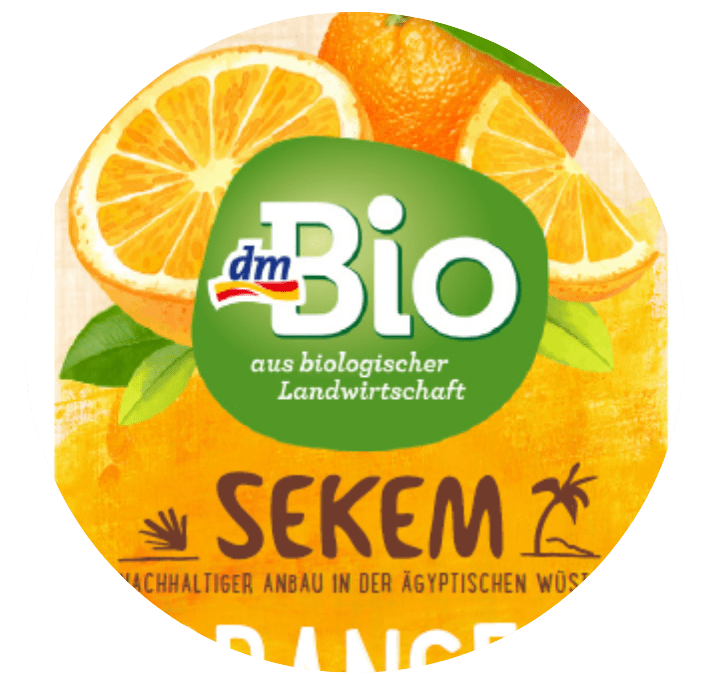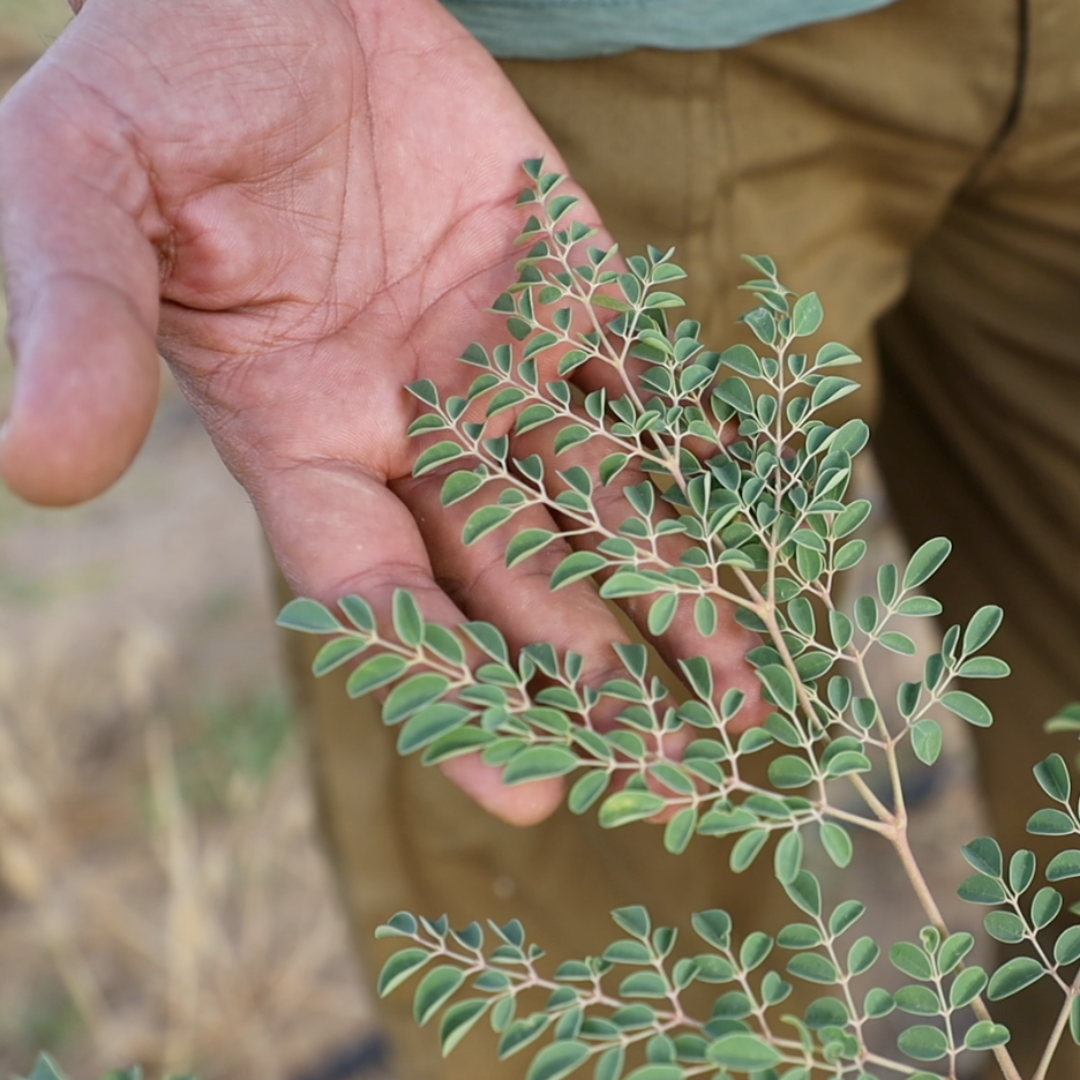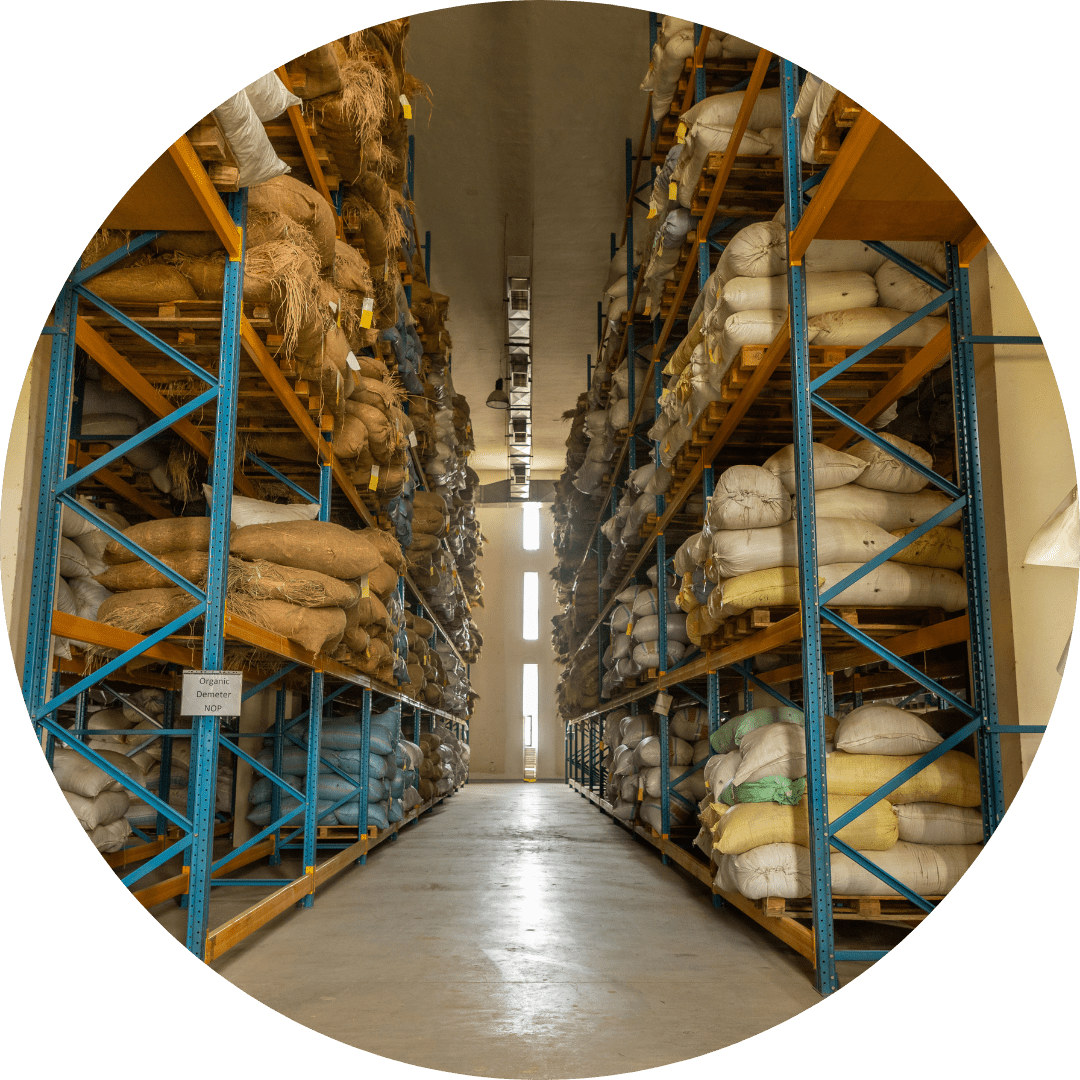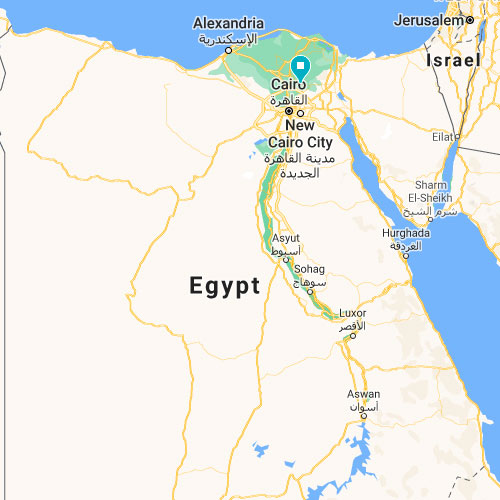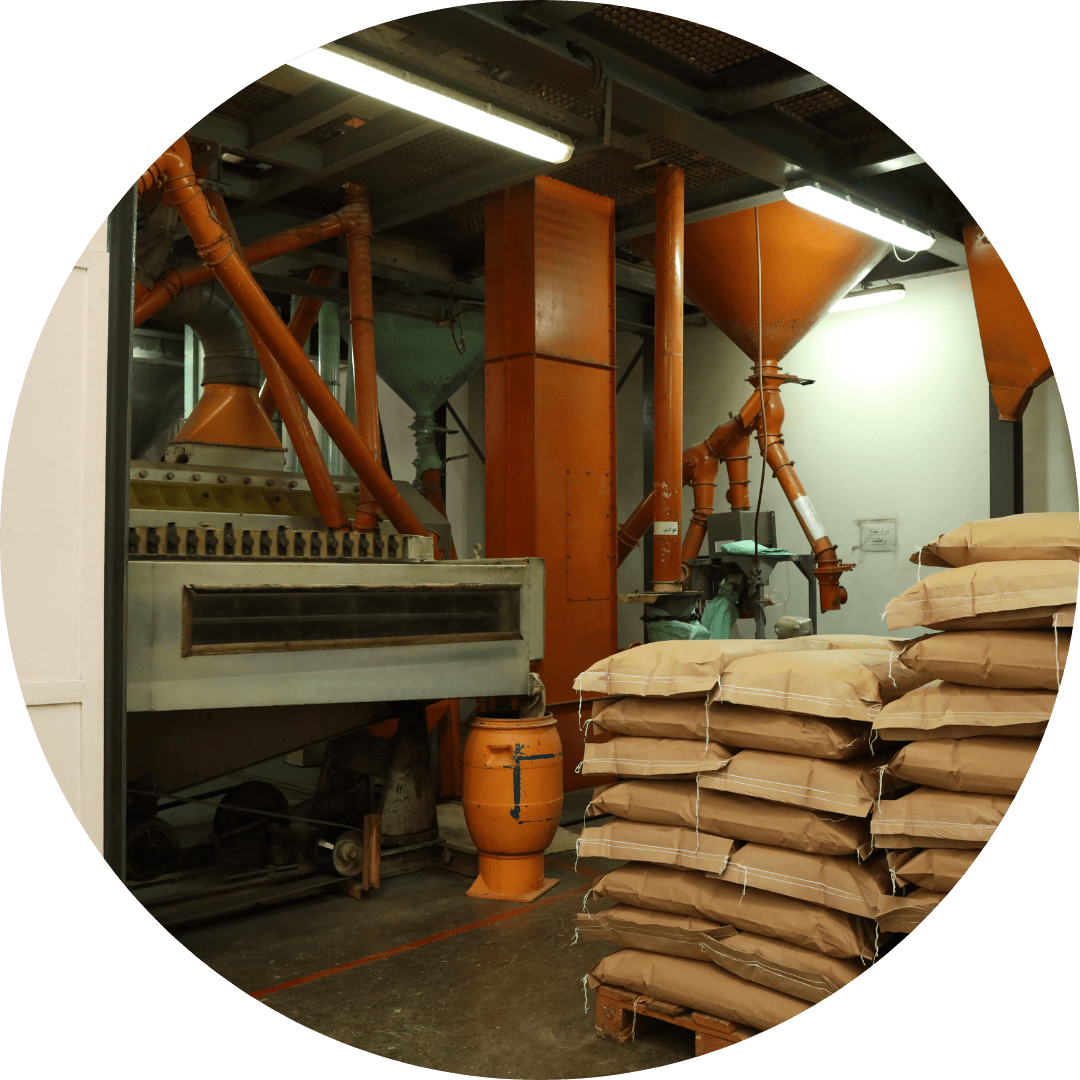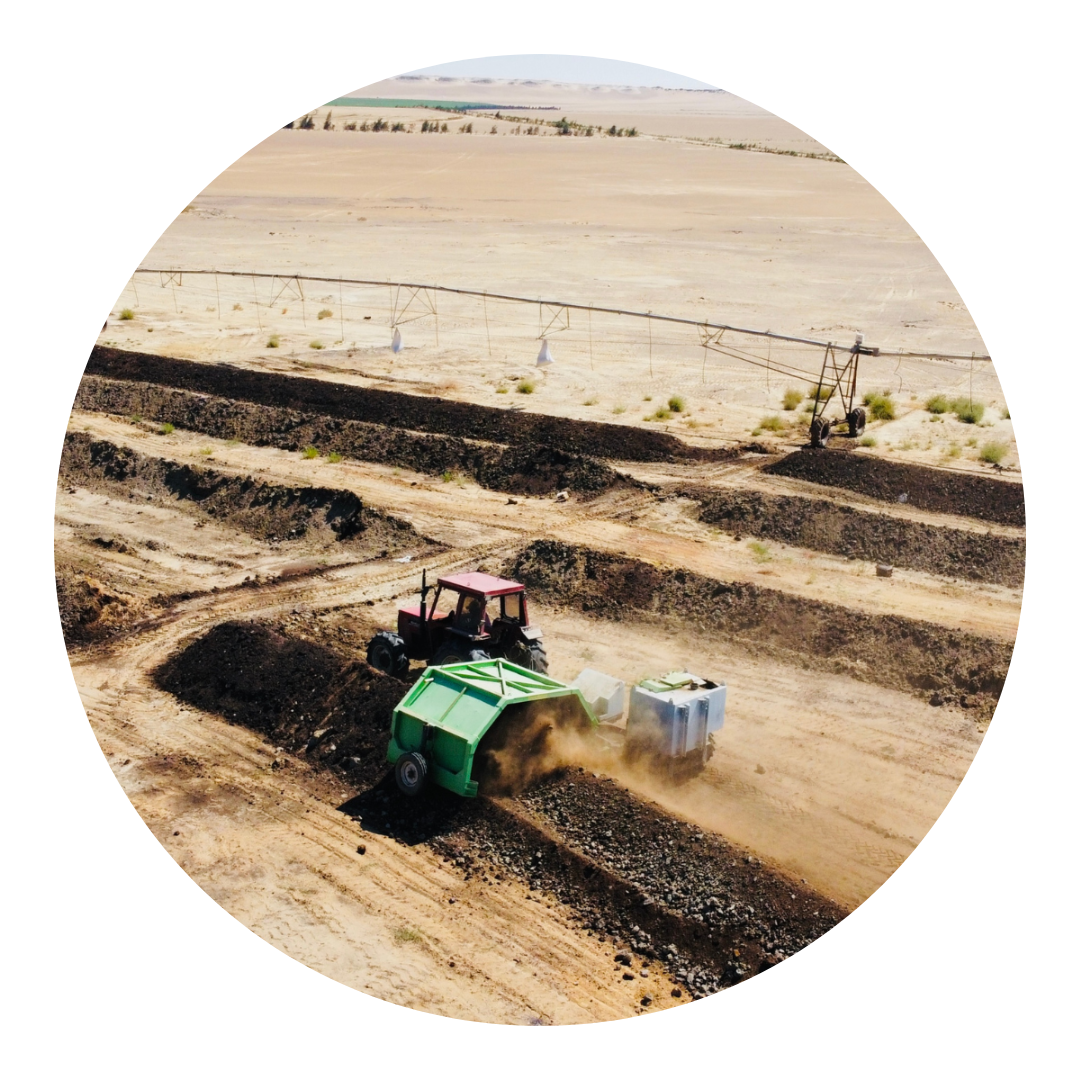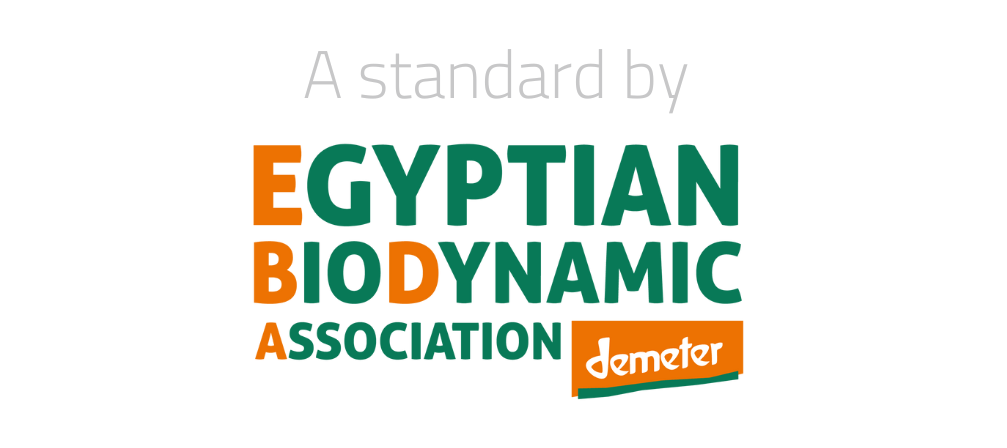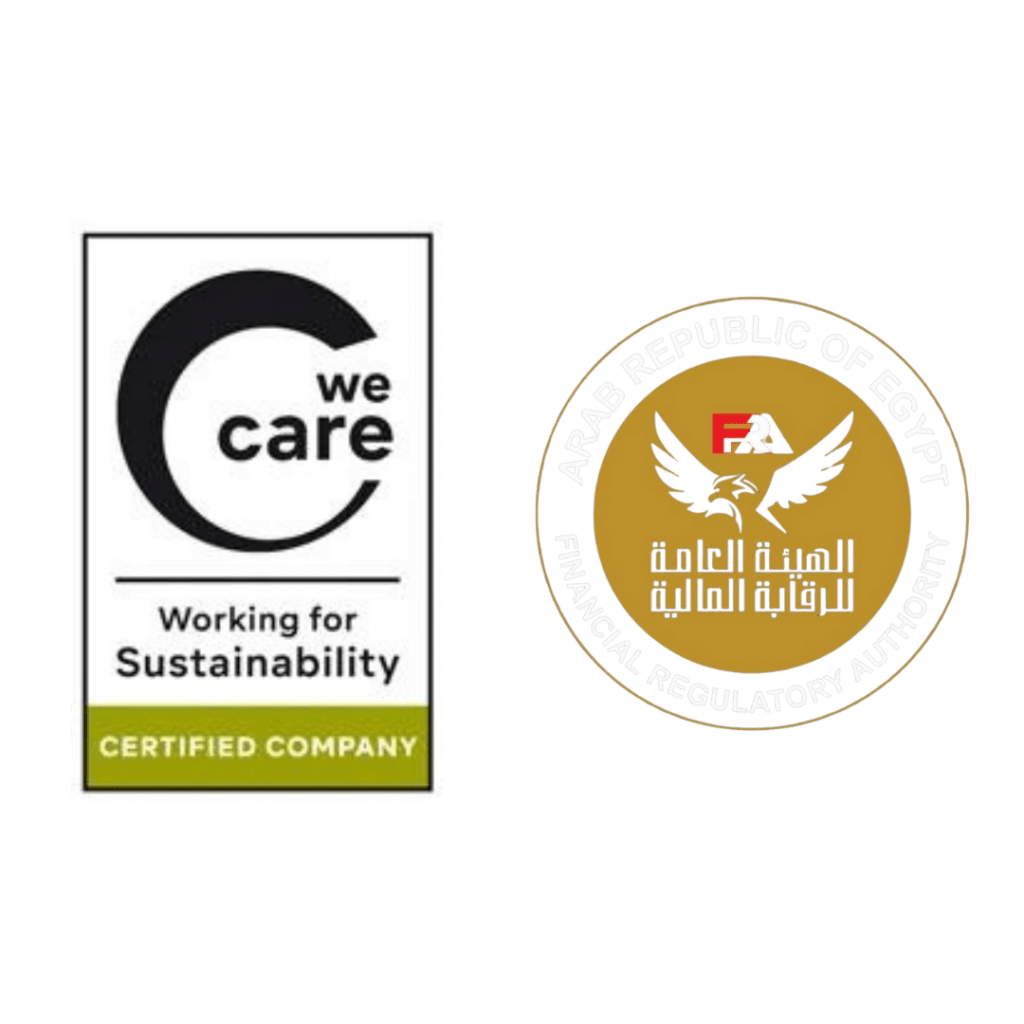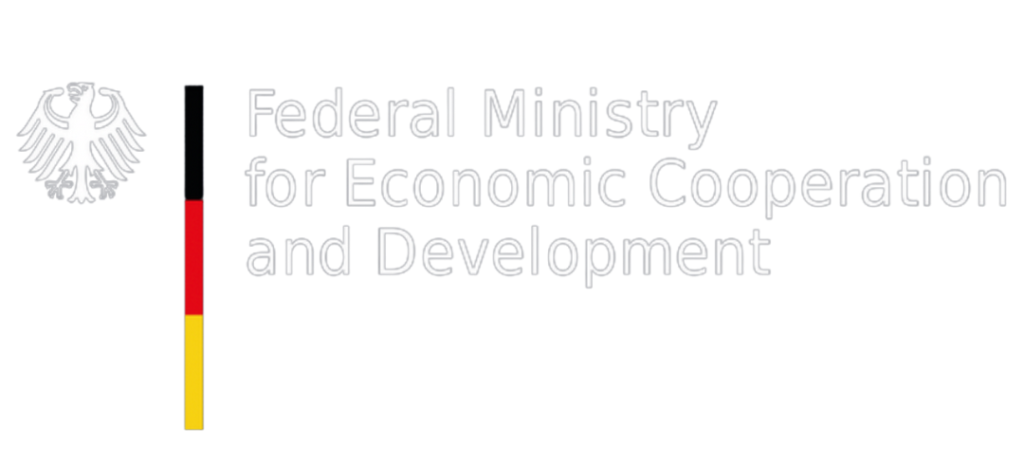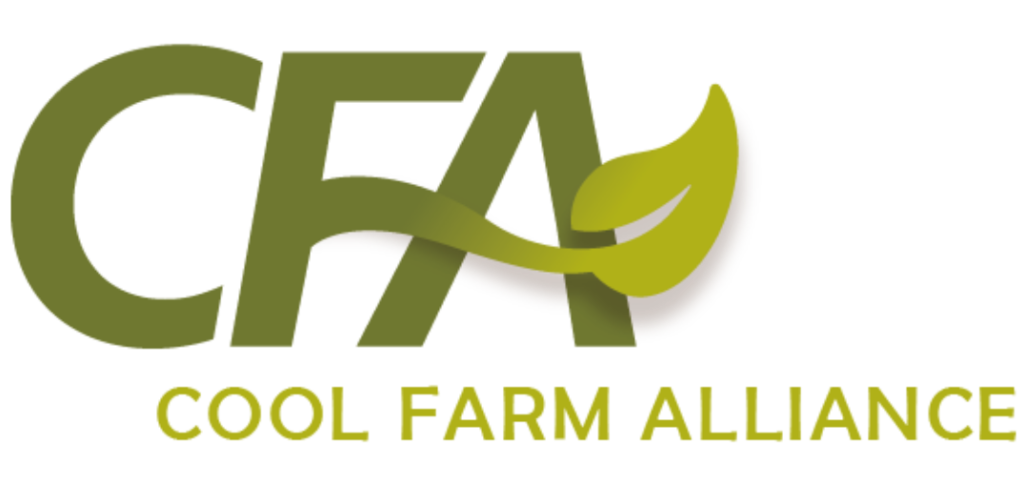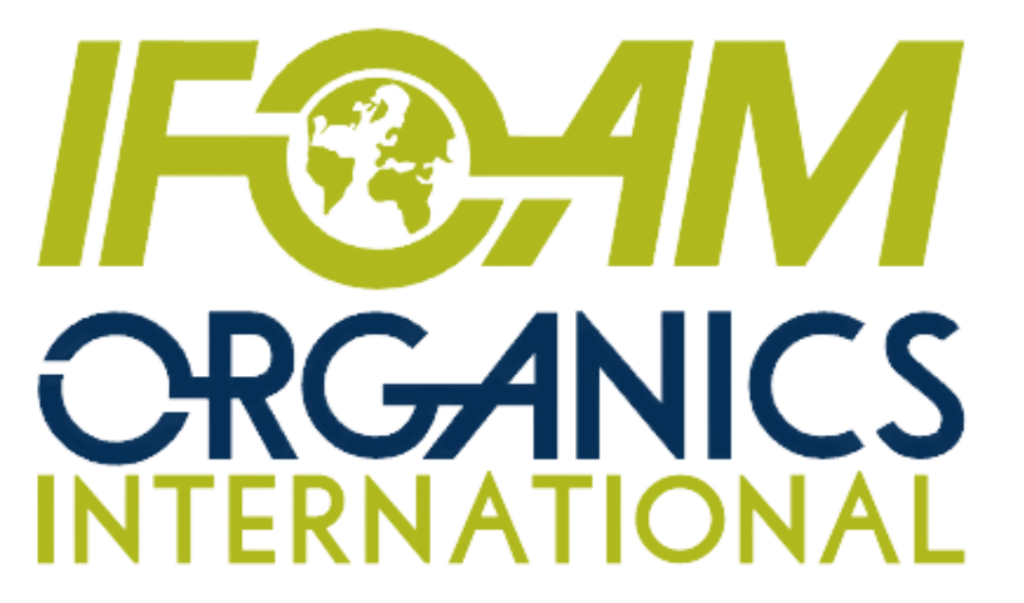Traceback your Product
and explore your
impact on people
& the environment

Creating a
FAIR ECONOMY
100%
of the EoL farmers have contact-bound long-term relationships with companies they’re supplying to.
Creating a
FAIR SOCIETY
100%
of full-time employees in Sekem who worked to produce this product receive health insurance and safe working conditions.
Life Long Learning &
WELLBEING
10%
of the working time in Sekem is dedicated to art and self-development activities; to promote wellbeing and happiness at work.
Protecting the
ENVIRONMENT
100%
of the people who worked to produce this product throughout the supply chain receive ecological awareness trainings.
Farming
SEKEM Oranges were grown on Sharqia and Behira farm in Egypt. The cultivation of oranges is certified organic, Demeter, and Economy of Love. These certifications ensure sustainable farming practices that actively protect the environment and increases biodiversity.
The Economy of Love farmers are demonstrating the effectiveness of mitigating climate change through sustainable agricultural practices and simoultaniously generating more income through the production of EoL Carbon Credits.
No chemical pesticides or fertilizers were used, in order to protect the water and air from pollution.
EoL provides guidance and support for small-scale farmers through engineers offering their consultancies every step of the way, to ensure the effective guidance throughout the agricultural seasons and providing them with funds and the necessary tools to facilitate their transition.
Meet The Farmers

get to the source of production
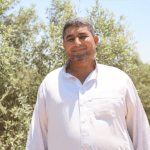
Khaled Ali
Farmer in Ismaeillia, Egypt
Khaled cultivates orange on his own farm called El- Sherka El-Dawlya with an area of 15 feddan. Has been cultivating oranges biodynamically since 2012.
Processing
The fresh oranges come directly from the farm to arrive at the iSiS Organic Food Company, samples are taken to be tested to ensure the standards of organic and biodynamic approaches are met. Then the vegetables are cleaned well and put in the refrigerator to keep it fresh. The oranges are sorted then squeezed in FMC machine that is specific for the citric products.
SEKEM is switching all its entities to work from 100% PV energy as an encouragement of the transition to renewable energy.
The organic wastes are sent to sites to be reused either as compost or animal fodder.
Factory workers work in safe conditions and receive health consultancies (in topics such as nutrition, physiotherapy, and lifestyle coaching) to promote well-being in the workplace.
Packing
After the orange is juiced it goes through a pasteurization process to purify it from any germs at 80°. Then it’s cooled at 8° and poured in a 190KG barrel in 2 bags to keep it restored well. Finally it’s frozen at -40° and then shipped in special containers that keep its temperature at maximum -18° to keep it fresh.
Total Soluble Solids in the orange juice must be not less then 10% to keep its Nutrients and it’s delicious taste.
During the processing they are kept in these blue polyethylene bags that are recyclable.
iSiS factory sells their non-organic waste left from the processing stage to external recycling entities in Egypt.
Packaging Material
The moringa is loaded into containers, trucks or cars and delivered either to ISIS company or shipped into the world. In 16 different countries around the world.
iSiS always opts for sea freight and only makes the decision to use air freight on the rare occasion that a client orders a small amount that can not be transported by sea.
The filter bags, the carton box and the label are FSC certified. Additionally the filter tea bags are tied together with the thread label, with no need for the metal part to attach them together.
Some packages require plastic wrap to meet customer’s requirements. However, the company is committed to finding more eco-friendly alternatives.
Distribution
After the orange is juiced it goes through a pasteurization process to purify it from any germs at 80°. Then it’s cooled at 8° and poured in a 190KG barrel in 2 bags to keep it restored well. Finally it’s frozen at -40° and then shipped in special containers that keep its temperature at maximum -18° to keep it fresh.
Total Soluble Solids in the orange juice must be not less then 10% to keep its Nutrients and it’s delicious taste.
During the processing they are kept in these blue polyethylene bags that are recyclable.
iSiS factory sells their non-organic waste left from the processing stage to external recycling entities in Egypt.
Meet The Employees

have a look, who processed, packaged and distributed your product
Hassan
Factory Engineer in Lotus
Hassan is in charge of the raw cleaning and packing machine in the processing facility of Lotus. Since 17 years he is working in Lotus and enjoys that work here is combined with culture program.
Marwa
Quality Manager in IsIs
Marwa has been working in the tea department of IsIs factory for more than 8 years. Together with her husband and two children she lives on the Sekem mother farm.
Ahmed
Factory Engineer at SEKEM
Ahmed has been working in SEKEM for four years, and lives right next to the SEKEM farm with his family.
Abdallah
Distributor in SEKEM
Abdallah has been an employee in SEKEM for over five years. He is responsible for distributing the finished products to stores all over Cairo.
What is the True Price?

Are there hidden costs that the price doesn't reflect?
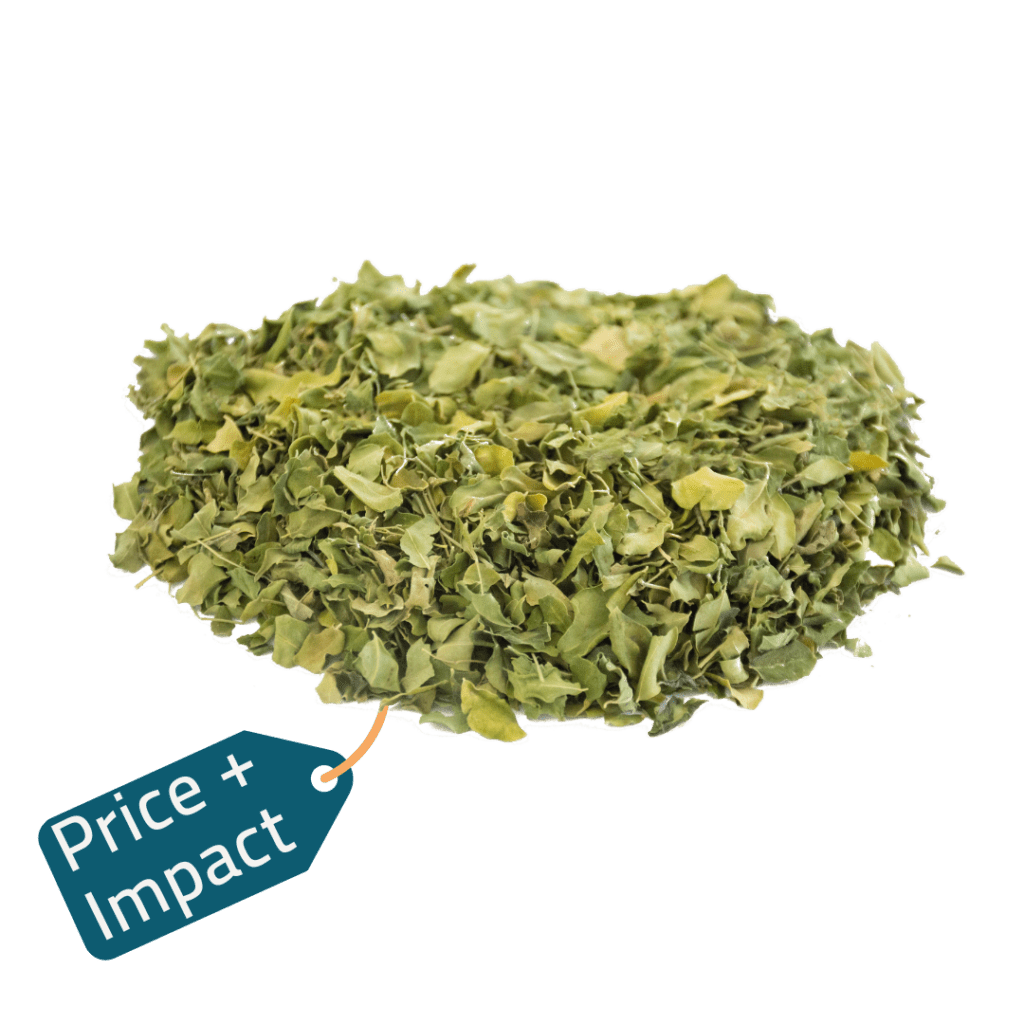
True Price Comparision
Sustainably & ethically produced products add value to society. However, when comparing prices, we don’t take into account the long-term impact of the product. For example, since the sustainable agricultural practices of cultivating this moringa is sequestering Co2e it is actually saving up future damage cost that you’ll eventually pay for. This means that it is cheaper than products that emit Co2e, but so often the price tag doesn’t reflect that.
We encourage you to compare products based on their true price; the price that reflects the hidden costs that you and future generations eventually pay for.

Indirect Costs include:

WATER
REPROCESSING COST
Society is paying taxes to clean water sources from agriculture’s chemical fertilizers, pesticides, and herbicides, as well as the irresponsible disposal of wastewater from factories, in order to make it usable/drinkable water.

HEALTH COSTS
The use of pesticides in agriculture eventually affects the human body and therefore increases medical treatment costs.

ENVIRONMENTAL
DAMAGE
Society has to bear the long-term cost caused by disruptive agriculture e.g. soil erosion, desertification, and loss of biodiversity.
Locations
Check out the locations of all the farms, companies who were involved in making this product!
discover the origin of your product
Wahat
El-Feky
We hope this information helped you Choose Your Impact!
And make mindful purchasing decisions that leave a positive impact on people and the environment
Interested to know more about the companies above? Click here to download the SEKEM Sustainability Report

